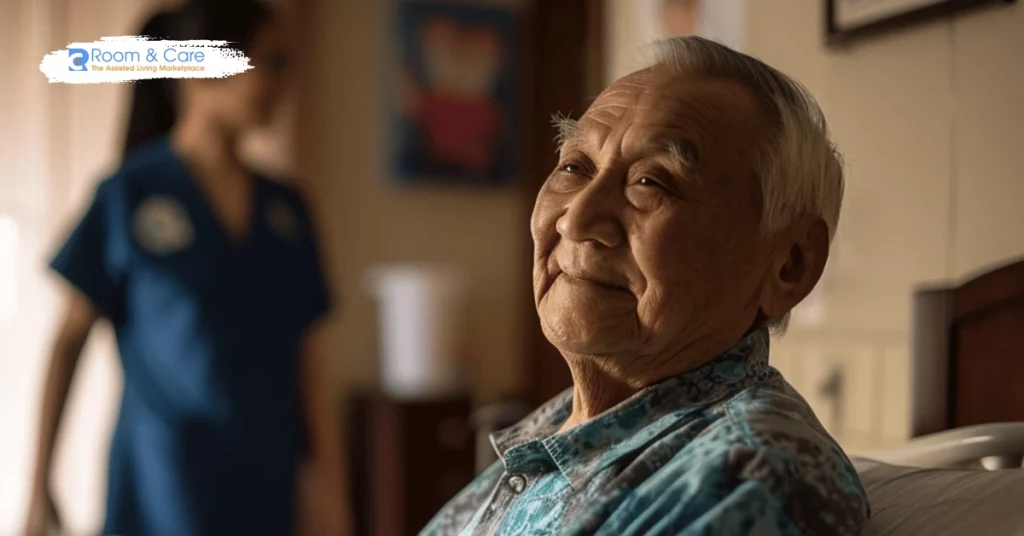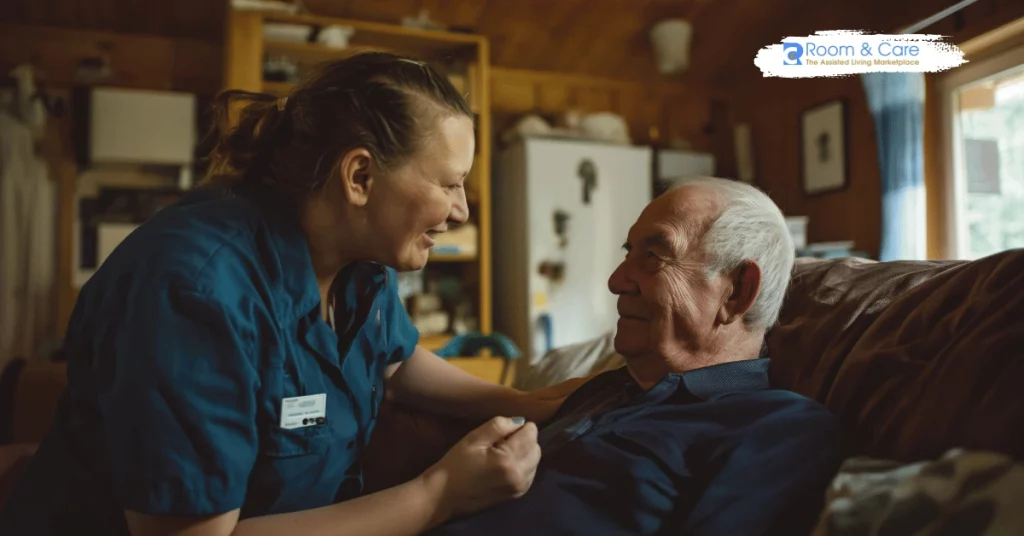

Veterans who have served our country face unique healthcare needs, including chronic conditions, rehabilitation for physical injuries, and specialized mental health support. Skilled nursing facilities (SNFs) designed for veterans are crucial for providing the level of care they require, offering both medical and emotional support tailored to their experiences. Whether veterans are recovering from surgery, managing chronic conditions, or in need of long-term care, skilled nursing facilities provide the necessary support, fostering independence and dignity.
This guide covers the essential aspects of skilled nursing facilities for veterans, with sections on the types of care provided, key factors in choosing a facility, tips for easing the transition, and answers to frequently asked questions. By understanding the options, veterans and their families can make informed decisions that lead to the highest possible quality of life.
Skilled nursing facilities (SNFs) are specialized care centers that provide comprehensive medical, rehabilitative, and social services in a structured environment. Unlike standard nursing homes, SNFs are equipped to deliver complex medical treatments, such as physical therapy, wound care, and mental health counseling, under the supervision of licensed healthcare professionals. Veterans benefit from facilities that understand their unique needs, providing care that acknowledges the physical and emotional impacts of military service.
Veteran-focused SNFs often go beyond medical care. They foster community, address mental health challenges, and provide social programs that connect residents with shared experiences. Selecting a facility designed with veterans in mind can make a significant difference in the quality of life and well-being of former service members.
Skilled nursing facilities offer round-the-clock medical supervision, providing stability for veterans with complex health needs. Nurses, doctors, and specialists are available to administer daily treatments, monitor chronic conditions, and handle emergencies. This continuous medical oversight is particularly valuable for veterans with conditions such as diabetes, respiratory issues, or heart disease, as it ensures they receive the right care at the right time, minimizing health risks.
Many veterans require physical, occupational, or speech therapy to regain mobility, independence, or cognitive function after surgery or injury. Skilled nursing facilities offer customized rehabilitation programs designed to meet veterans’ specific needs. Physical therapy helps restore strength and mobility, while occupational therapy assists veterans in adapting to daily activities. Speech therapy is often available for those needing support with communication or swallowing difficulties.
Mental health services are an essential component of care for many veterans, who may deal with PTSD, anxiety, depression, or other service-related psychological conditions. Skilled nursing facilities for veterans often provide access to therapists and counselors trained in veteran care, offering individual therapy, group counseling, and social support groups. These mental health resources foster a sense of belonging and healing, making SNFs a supportive environment for veterans dealing with emotional challenges.
For veterans with multiple health conditions, medication management is crucial. Skilled nursing facilities ensure that all medications are administered correctly and on schedule, preventing complications that can arise from missed doses or drug interactions. Licensed professionals in SNFs coordinate with healthcare providers to monitor the efficacy of medications, making adjustments as necessary to improve health outcomes.
Isolation can be a common challenge among veterans, particularly those adjusting to life in a care facility. SNFs address this by offering a variety of social programs, activities, and events that encourage interaction and engagement. Many skilled nursing facilities for veterans include programs that foster camaraderie, such as veteran support groups, commemorative events, and group recreational activities. Building a sense of community contributes to a veteran’s overall well-being and helps them feel connected in their new environment.

Choosing a skilled nursing facility is a significant decision that requires careful consideration of several factors to ensure the best possible care and comfort for a veteran.
Accreditation from reputable organizations, such as the Joint Commission, signifies that the facility adheres to high standards of care. Additionally, some skilled nursing facilities are certified by the U.S. Department of Veterans Affairs (VA), which often indicates they are better equipped to provide veteran-focused services. Verifying a facility’s accreditation and VA certification is a good starting point in the search for quality care.
Veterans have unique health needs, and it’s beneficial to find a facility that provides veteran-specific programs, such as mental health services tailored to PTSD or physical rehabilitation for service-related injuries. Look for SNFs that recognize these needs and offer support systems specifically for veterans. The facility’s experience in treating veterans can make a notable difference in the quality and relevance of care provided.
The quality of a skilled nursing facility largely depends on the expertise of its medical staff. It’s important to assess the facility’s nurse-to-patient ratio, staff credentials, and experience in handling complex medical conditions common among veterans. Facilities with licensed nurses, doctors, and therapists trained in veteran care are typically better equipped to deliver personalized care.
Rehabilitation is often essential for veterans recovering from surgeries, injuries, or illness. Ensure that the skilled nursing facility offers comprehensive rehabilitative services, including physical therapy, occupational therapy, and speech therapy. Confirming the availability and frequency of these therapies can give veterans and families confidence that the facility supports recovery and long-term health goals.
The cost of skilled nursing care can be substantial, especially for long-term stays. Veterans may qualify for VA benefits, Medicaid, or Medicare, which can offset some of these expenses. It’s essential to understand the facility’s pricing structure and inquire about available financial assistance. Facilities that work with veterans’ benefits and accept Medicaid or Medicare can make skilled nursing care more accessible for veterans and their families.
Navigating the selection process can be challenging. Here are some practical tips to simplify the decision-making and ensure the chosen facility meets a veteran’s needs.
Touring different skilled nursing facilities allows families to observe the environment and quality of care firsthand. During visits, look for signs of cleanliness, resident engagement, and staff attentiveness. Speaking with staff members and current residents can also provide valuable insights into the facility’s culture and daily operations.
Medicare’s Nursing Home Compare tool and state health department websites publish ratings and inspection reports on skilled nursing facilities. Reviewing these reports reveals information on the facility’s compliance history, quality measures, and resident satisfaction. Facilities with consistently positive ratings are often more reliable choices.
Whenever possible, involve the veteran in choosing the facility. Touring facilities together and discussing preferences can make the transition easier, as the veteran feels a sense of agency in the decision. Veterans may also feel more comfortable in a facility that aligns with their personal preferences and values.
For many veterans, social interaction is vital to a fulfilling life. When evaluating facilities, inquire about the social and recreational activities offered, including veteran-focused events, support groups, and leisure activities. Programs that encourage socialization and community building can have a positive impact on veterans’ emotional and mental health.
Choosing a facility that is close to family members allows for more frequent visits and greater involvement in the veteran’s care. Proximity to family helps maintain strong connections and supports the veteran’s emotional well-being. Regular visits from loved ones can ease the transition into a new living environment and foster a supportive atmosphere.

What distinguishes skilled nursing facilities from nursing homes?
Skilled nursing facilities offer a higher level of medical care and supervision, often required for those recovering from surgeries or managing complex health conditions. Nursing homes, on the other hand, provide more custodial care, assisting with daily activities but without intensive medical support.
Are all skilled nursing facilities equipped to handle veterans’ needs?
Not every facility specializes in veteran care. While all SNFs provide medical support, veteran-focused facilities typically offer additional services such as PTSD counseling, physical rehabilitation for service-related injuries, and veteran-centered programs.
What financial resources are available to help veterans cover skilled nursing costs?
Veterans may be eligible for financial assistance through VA benefits, including Aid and Attendance, which helps cover the cost of skilled nursing care. Additionally, Medicaid and Medicare can contribute to covering costs, depending on the veteran’s eligibility and financial situation.
How can I find a skilled nursing facility that meets my veteran family member’s needs?
Room and Care is a useful resource for finding veteran-friendly skilled nursing facilities and other care options. Through Room and Care, families can connect directly with high-quality facilities without incurring referral fees, making it easier to access affordable, veteran-centered care.
Transitioning to a skilled nursing facility is a major life event that can be challenging for veterans and their families. The following tips can help make the transition smoother and more comfortable for everyone involved.
Bringing personal items such as family photos, favorite books, and personal decorations can make the veteran’s new space feel familiar and comforting. A personalized room helps ease the transition by providing reminders of home and loved ones.
Encouraging the veteran to participate in social activities offered by the facility helps them build new connections and engage with fellow residents. Social engagement promotes emotional well-being and helps prevent feelings of isolation or loneliness.
A consistent routine can provide stability and reduce anxiety, particularly in the early days of the transition. Working with facility staff to set up a daily schedule that includes meals, recreational activities, therapy sessions, and rest times can help the veteran feel comfortable in their new environment.
Regular family visits provide emotional support and keep the veteran connected to loved ones. Staying involved in the veteran’s care helps family members monitor their progress and reinforces their support system within the new setting.
Skilled nursing facilities for veterans provide a comprehensive approach to care, supporting the medical, rehabilitative, and emotional needs of those who have served. By carefully considering factors like facility accreditation, staff expertise, social programs, and proximity to family, veterans and their families can select an SNF that ensures comfort, dignity, and quality of life.
Room and Care offers a valuable resource for those seeking skilled nursing facilities and other care options without the additional expenses of referral fees. For veterans and their families, finding the right facility is not only about medical care—it’s about providing a home that respects veterans’ service and supports their health. Start exploring your options today with Room and Care to find the skilled nursing facility that best meets your loved one’s needs, ensuring they receive the respect and care they deserve.